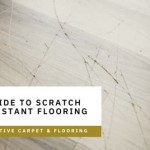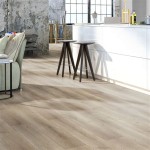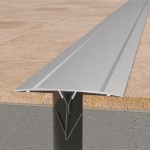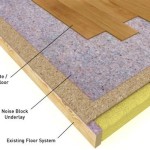What Are The Pros And Cons Of Vinyl Flooring?
Vinyl flooring has become increasingly popular in recent years, offering a durable and stylish alternative to traditional flooring options like hardwood, tile, and carpet. Its versatility and affordability make it a suitable choice for various spaces, from kitchens and bathrooms to living rooms and bedrooms. However, like any flooring material, vinyl has its own set of advantages and disadvantages that homeowners should consider before making a decision.
Pros of Vinyl Flooring
Vinyl flooring boasts several benefits that make it an attractive option for many homeowners:
Durability and Longevity
Vinyl flooring is known for its exceptional durability. It can withstand heavy foot traffic, scratches, dents, and spills, making it an ideal choice for high-traffic areas. Furthermore, modern vinyl flooring is designed to last for many years, requiring minimal maintenance. Unlike other materials like hardwood or carpet, vinyl flooring does not require re-sanding or refinishing, making it a long-term investment.
Water Resistance
Vinyl flooring is inherently water-resistant, making it an excellent choice for areas prone to moisture, such as kitchens, bathrooms, and laundry rooms. Its water-resistant properties prevent water damage, mold growth, and warping, ensuring a hygienic and durable flooring option.
Easy Maintenance
One of the most significant advantages of vinyl flooring is its ease of maintenance. Vinyl surfaces are generally smooth and non-porous, making them easy to clean with a damp mop or broom. Unlike carpet, vinyl flooring does not require vacuuming or professional cleaning, saving time and effort.
Affordability
Compared to other flooring materials like hardwood or natural stone, vinyl flooring is significantly more affordable. Its lower price point makes it an accessible option for homeowners on a budget, allowing them to upgrade their floors without breaking the bank.
Wide Variety of Styles and Designs
Vinyl flooring offers a wide range of styles and designs to suit any aesthetic preference. From realistic wood and stone looks to modern patterns and textures, there is a vinyl flooring option for every taste. The wide variety of colors, patterns, and textures allows homeowners to create a unique and personalized look for their spaces.
Sound Absorption
Vinyl flooring is generally quieter than hard flooring materials like tile or hardwood. Its softer surface can help absorb some noise, making it a suitable choice for bedrooms, living rooms, and other spaces where noise reduction is desired.
Installation
Vinyl flooring can be installed in various ways, including gluing, floating, or click-lock systems. Most vinyl flooring types are relatively easy to install, making it a DIY-friendly option for homeowners with basic construction skills. However, the process can be more complex for certain types of vinyl flooring, requiring professional installation.
Cons of Vinyl Flooring
Despite its numerous advantages, vinyl flooring also has some drawbacks that homeowners should consider:
Sustainability
Vinyl flooring is primarily made from polyvinyl chloride (PVC), a synthetic material derived from petroleum. While some vinyl flooring options are now being made with recycled materials, the production and disposal of PVC can have environmental concerns. Homeowners concerned about sustainability may prefer alternative flooring materials with a lower environmental impact.
Limited Durability Compared to Some Flooring Materials
While vinyl flooring is durable, it may not be as long-lasting as other flooring materials like hardwood or ceramic tile. Over time, vinyl flooring can become scratched, dented, or faded, especially in high-traffic areas. However, advancements in vinyl flooring technology have led to the development of more durable options.
Potential for Fading
Vinyl flooring can be susceptible to fading, particularly in areas exposed to direct sunlight. This fading can be minimized by using fade-resistant vinyl flooring options or by using window treatments to reduce direct sunlight exposure.
Limited Temperature Tolerance
Vinyl flooring may not be suitable for extreme temperatures, as it can become brittle in cold climates or warp in very hot conditions. However, newer vinyl flooring options are designed to be more temperature-resistant.
Potential for Allergens
Like any flooring material, vinyl flooring can accumulate dust, allergens, and other pollutants. Regular cleaning and maintenance can help minimize allergen buildup, but homeowners with severe allergies may prefer alternative flooring options.
Selecting the right flooring involves weighing the pros and cons and determining what best suits your needs and preferences. Vinyl flooring offers a balance between affordability, durability, and style, making it a popular choice for many homeowners. However, its drawbacks should be considered before making a final decision.

Laminate Vs Vinyl Flooring Pros And Cons How To Choose Lx Hausys
Pros And Cons Of Luxury Vinyl Flooring In Basements

Luxury Vinyl Flooring Pros And Cons I Never Thought We D Do This To Our Main Floor Diy Life

The Pros And Cons Of Vinyl Plank Flooring Ohio S Best Home Improvement Roofing Bathroom Remodel Experts

The Pros And Cons Of Vinyl Flooring In Living Rooms

Pros And Cons Of Wpc Vinyl Flooring 3c Rigid Core Luxury Plank Pvc Sheeet Manufacturer

Vinyl Flooring The Pros And Cons

Vinyl Flooring And Floor Tiles The 8 Pros Cons

This Or That Laminate Vs Vinyl Ben Laube Homes

8 Benefits Of Vinyl Flooring Fabricio Hardwood Floors
See Also







